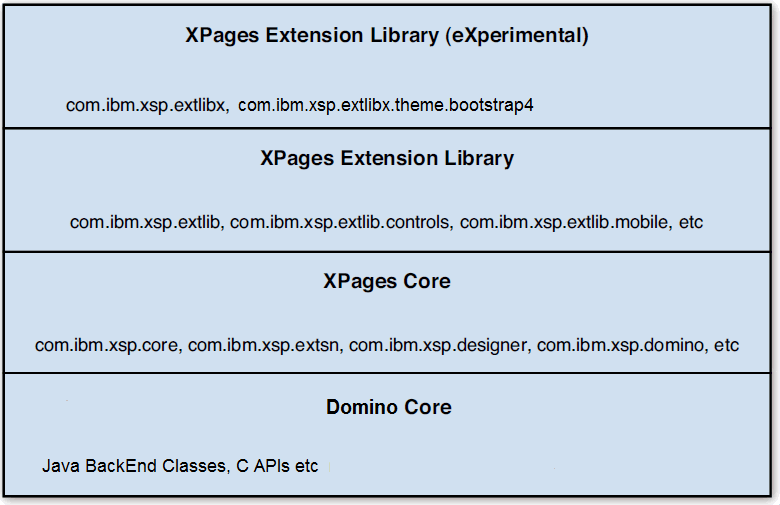Just over a year ago the Bootstrap4XPages
project was subsumed as part of the XPages
Extension Library on OpenNTF.
Bootstrap is a world-leading framework for building responsive web applications
that play well across the gamut of modern computing devices, from phone
to tablet to the plain ol’ PC desktop. The Bootstrap
framework has integrated well with
XPages and is probably the most popular choice amongst XPages developers
when building application front-ends today. This post is all about how
we intend to keep Bootstrap up to date in XPages going forward.
Currently XPages integrates Bootstrap 3.2
as part of the Extension Library but as you know, Bootstrap 4 will be coming
down the pike soon enough, given that there has already been an alpha release
this past August. Bootstrap
4 will offer a host of new capabilities
to spruce up your apps and so we need to get busy and weave these into
XPages as early as possible. This is where ExtLibX
comes in!
The Extension library has always had an
incubation layer for new projects intended for rapid innovation on a particular
area of interest and where the outcome, if successful, can migrate to the
Extension Library and ultimately to the XPages product core itself (See
Figure 1 for the XPages stack). So this week an initial release of an XPages
Bootstrap 4 project has been introduced to ExtLibX. It contains the various
design artifacts necessary for XPages to support Bootstrap 4, i.e. some
renderers, CSS resources, XSP config files etc. It also contains a sample
ToDo application that is already based on Bootstrap 4 and exhibits some
of the new alpha capabilities.
 Figure 1 - Layers of the XPages Runtime
Stack
Figure 1 - Layers of the XPages Runtime
Stack
Our goal here is to add full Bootstrap
4 support into ExtLibX over the coming weeks and months so that XPages
can have ready-made support for Bootstrap 4 when it is released. You can
help by contributing code to the associated
GitHub project thus enabling us to
reach our goal faster. Getting involved is easy - the experimental layer
has less rigid requirements for contributions than the Extension Library
itself. As long as you are an
OpenNTF contributor you can jump
right in, make a contribution however big or small, and issue a direct
pull request. It’s as simple as that!
Interested in participating? We have a new
Slack
channel dedicated to Extension Library
discussions where you can ask questions and find out more about activities
in this space. We hope to see you there soon!